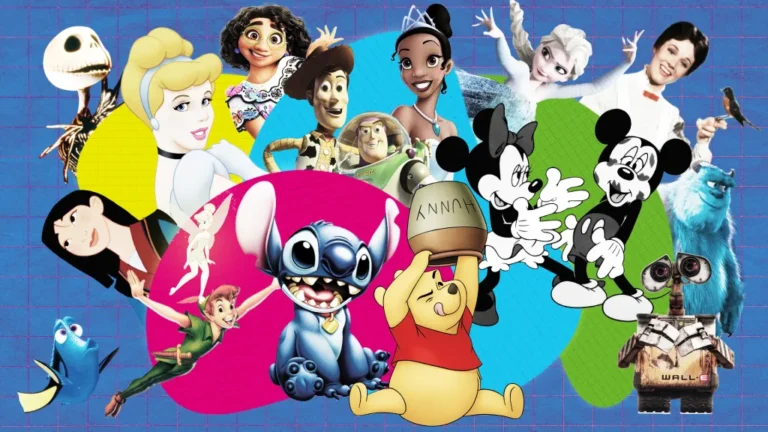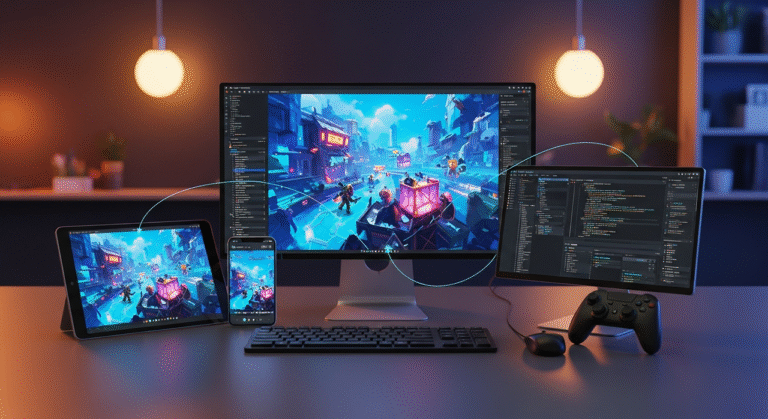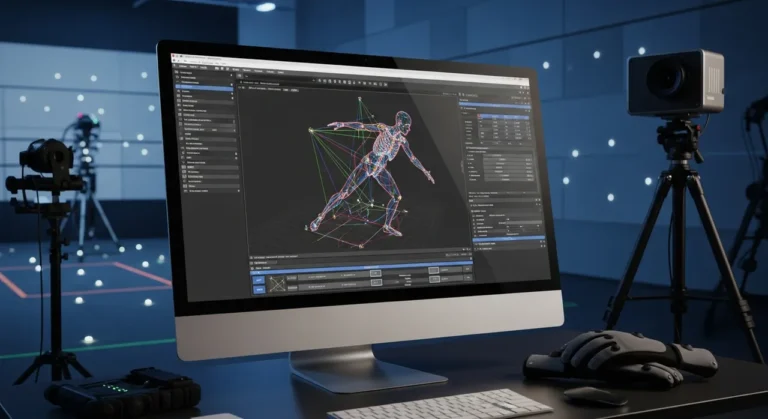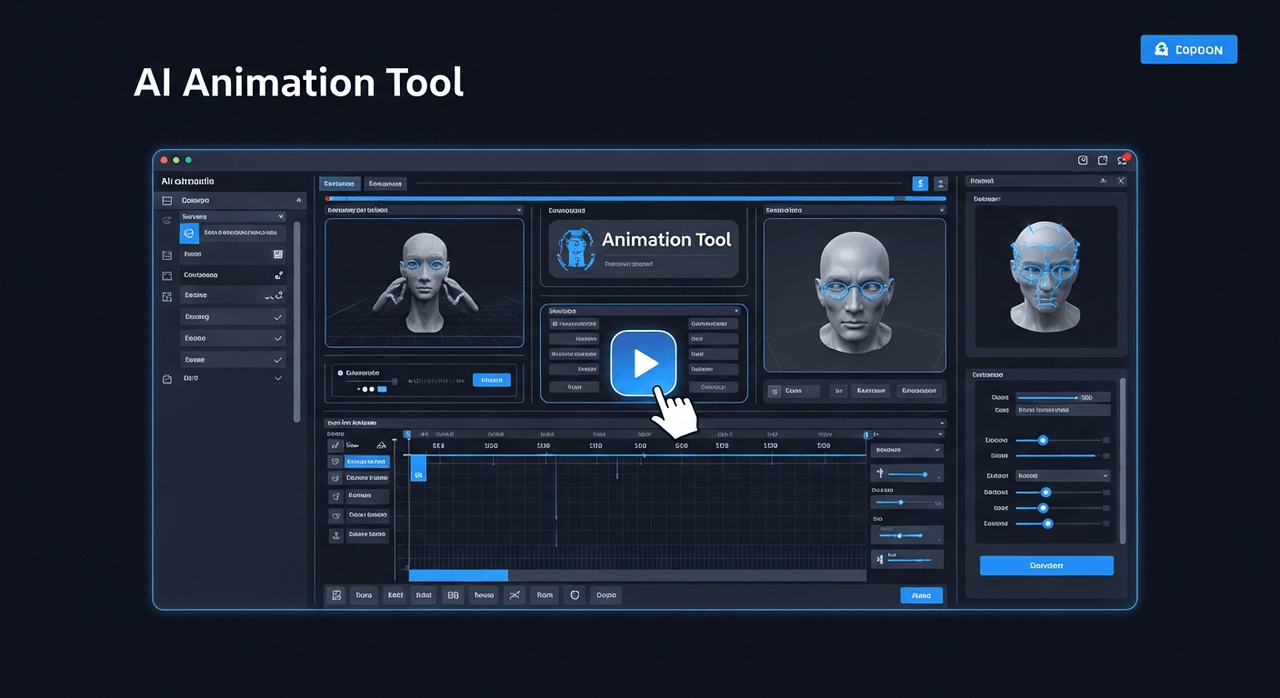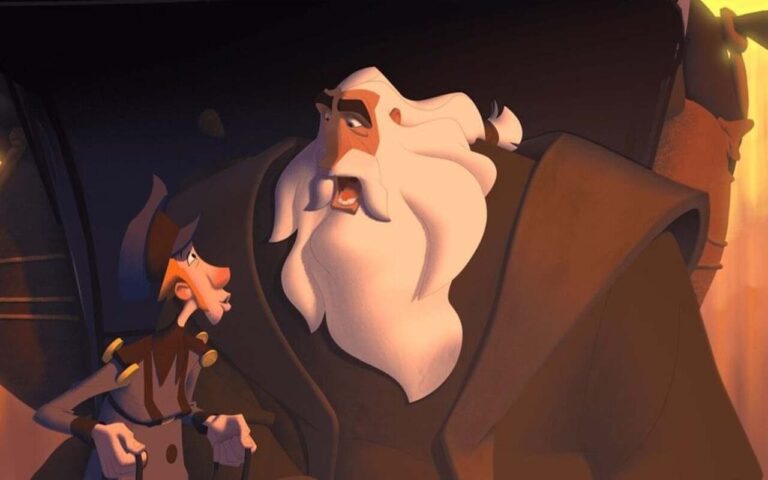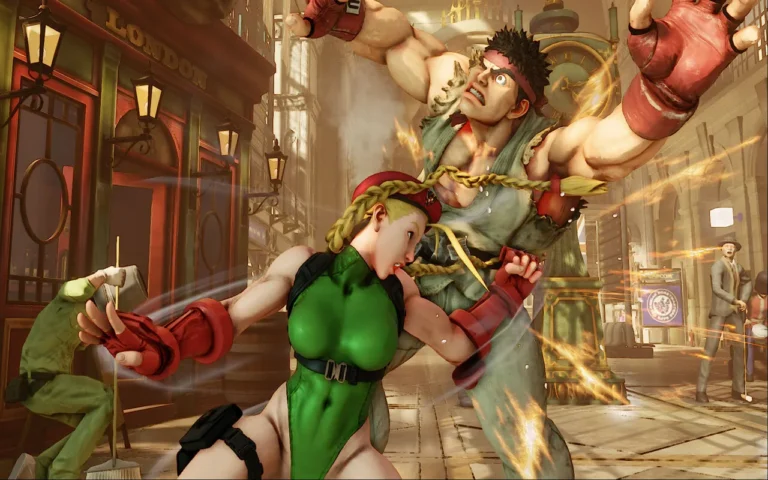At this point, video game trailers are a true art form. These are more than just advertisements, these are emotional rollercoasters that perfectly capture the essence of the gaming experience in an action-packed 30-second shot of adrenaline.
With all of the deeply artistic live-action shots in Death Stranding and the terrible realistic in-engine beauty of Cyberpunk 2077, we’ve pretty much crossed the line and trailers are now actually a type of short film that is beyond just simple marketing. The top-tier honor the art of the game, encapsulate its visceral emotional center and teeter on the edge of having you jonesing for more like a junkie needing their next fix.
Yet what makes the legendary trailer hall-of-farmers vastly different from the conveniently forgettable? Whether you’re an aspiring developer hoping to create some buzz around your latest passion project, or a seasoned studio ready to generate some noise before your next release, getting these elements right is essential.

Need Animation Services?
Visit our Animation Service page to see how we can help bring your ideas to life!
Mastering the Cinematic Narrative Arc
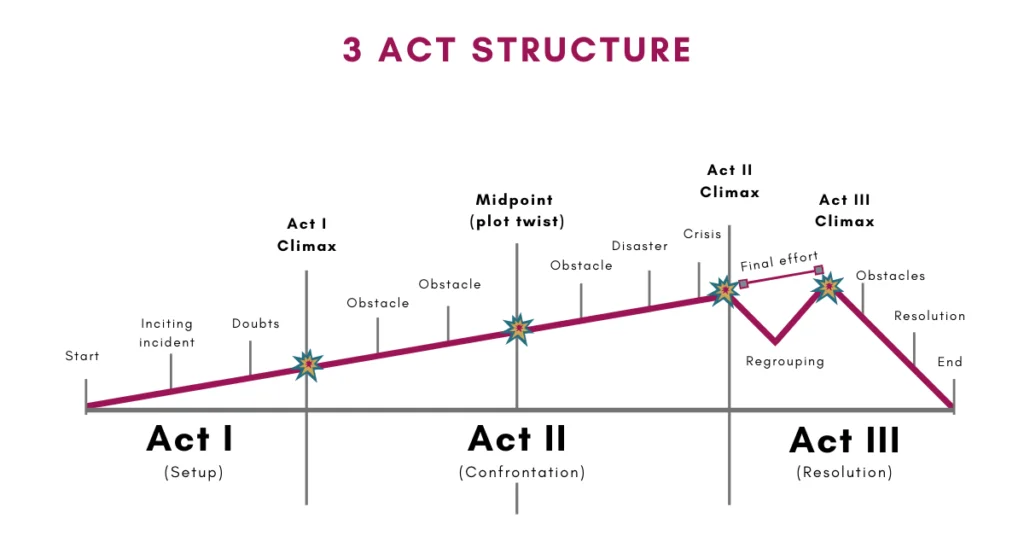
The most iconic trailers tell rich stories in microcosm via the classic 3-act narrative structure:
The Setup: Swiftly immerse viewers into the game’s universe, introducing key characters and conflicts that will drive the emotional core. Think of Kratos’ gruff paternal relationship with Atreus in the God of War trailer, instantly throwing you into their journey.
This critical opening beat wastes no time laying your narrative foundations. It could spotlight the protagonist’s motivations, the central threat lurking on the horizon, or even open with an instigating incident upending the status quo. Whatever your chosen hook, make sure it’s gripping enough to rope viewers into emotionally investing from the jump.
The Confrontation: Steadily ramp up the stakes, spicing the hero’s journey with tantalizing gameplay snippets hinting at challenges to be conquered. Few executed this better than the Red Dead Redemption 2 trailer’s myriad story/action teasers of larger gang wars, train heists, bounty hunter showdowns, and more.
This is where you crank the proverbial heat, layering more and more conflict into the escalating plot while intermingling glimpses of the actual gameplay sizzle to come. Don’t just limit it to action sequences either – emotional character beats and narrative surprises work just as well to engage audiences.
The Resolution: Leave viewers slack-jawed and hungry for more as the trailer climaxes with a final act reveal or pivotal story beat. The Elden Ring trailer’s shocking Malenia tease or Death Stranding’s Carter introduction are pitch-perfect crescendos firing your imagination into overdrive.
Whether it’s a haymaker plot twist, emotional gut-punch, or heroic character-defining choice, this capstone moment should both thematically summarize the experience’s core essence and dangling one final tantalizing hook. It’s the exclamation point that sticks with audiences as the hype train roars away.
This classic rising storytelling framework hooks viewers through character and spectacle, propelling them through the visceral highs and relatable emotional core of the full game experience to come. It transforms a mere advertisement into a miniature dramatic teleportation pod beaming you straight into the game’s universe.
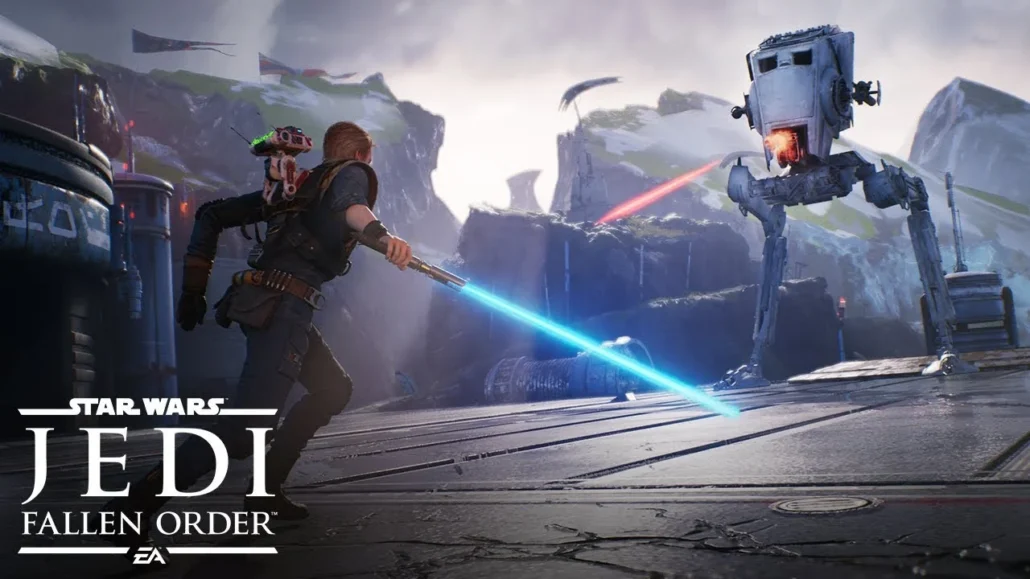
Atmosphere, Authenticity & Fan Service
Beyond the narrative, the most gripping trailers exude the authentic atmosphere and vibe of the actual gaming experience in spades. It’s the cumulative effect of visual effects, music, editing, and overall creative direction synthesizing into a tone mirroring the game’s spirit.
Compare the frenetic cyberpunk bombast of Matrix-inspired gunplay in the Cyberpunk 2077 trailers to the melancholic guitar riffs and pensive pacing echoing Red Dead’s wistful frontier mood. Each etches the game’s fundamental essence into your spine before you ever pick up the controller.
And it goes beyond mere surface aesthetics. The most transporting trailers pack every creative facet with deeper thematic resonance. The haunting spirits came visuals of Sifu drip with the same kung-fu revenge parable gravitas as its actual narrative. The Souls series’ bleak, haunting dirge-like marketing pierces you with the same sense of futile perseverance as overcoming its gameplay.
Even the editing cadence is rife with atmospheric intentionality. The rapid, pummeling handheld cuts of the Doom: Eternal trailers lacerate with the same badass bravado as its shotgun-sawing action.By comparison, placid long takes that really place you in the low-key emotional intimacy of something like “The Last of Us” trailers. Just as important as continuing to sate your audience’s bloodlust is in remembering to bring back franchise nuggets, and recognizable character beats and set up just enough recognizable snippets to whet the appetite, while blending them with new tricks.
The trailers of the Mass Effect trilogy exemplified this craft, filling them with delicious Reaper/Normandy/squadmate breadcrumbs along with new story/gameplay revelations to thrill both nostalgic fans and newcomers simultaneously. This multi-sensory immersive blend of cinematic storytelling, auditory nail-biting, and rewarding fan service is the secret sauce turning the best game commercials of all time into an audio-visual narrative that transcends advertisement.
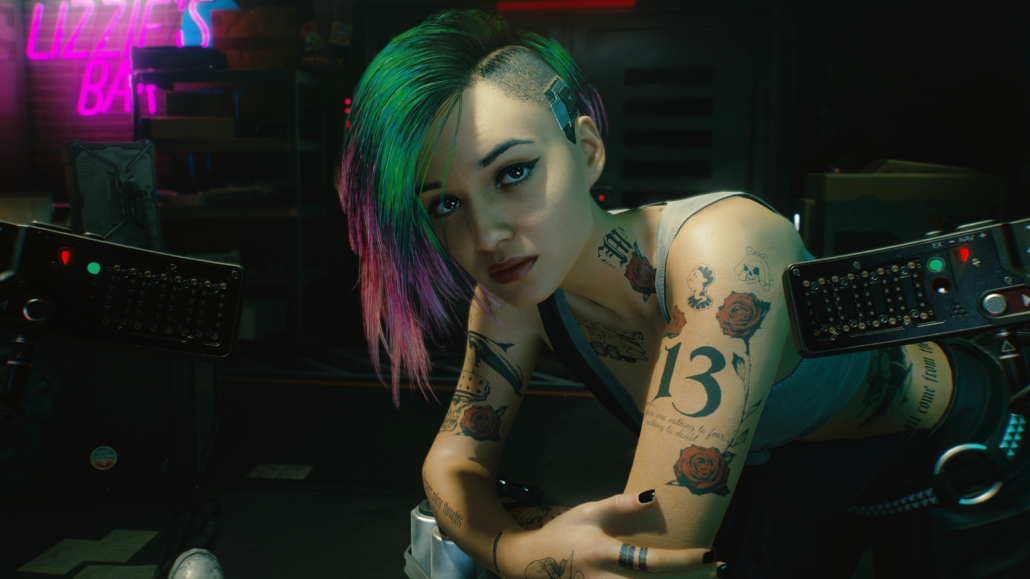
Heart of the Game: Gameplay
A game trailer wouldn’t be worth a damn without gameplay money shots to shoot gamer sauce all over your gamer senses, though. Whether rapid cinematic cut-throughs or extended unbroken sequences, the gameplay is the crucial endgame anchoring the trailer in the root interactive reality. The best game trailers artfully balance broad and deep when shaping their gameplay moments. They hit on just enough of the signature mechanics and dramatic scenery to suggest the scale of the experience and the grandness of the ambition.
However, they ensure to dive deep into showcasing the major innovations and game-changing features. For Grand Theft Auto V, Breath of the Wild, or Red Dead 2, that means playing huge, lengthy bites of game in real-time, moving from one open-world powerhouse to the next as they blast through to more shots of unbridled freedom. These are ideal for flicking a switch in your mind that says “I really fancy some sandbox mayhem.” For cerebral narrative frolics like Detroit: Become Human or jaw-dropping theatrical experiences like Hellblade, it’s about readying you for exciting new approaches to interactivity in storytelling. Perhaps trailers will show some of the crucial diverging narrative points where a single decision has a ripple effect across realities.
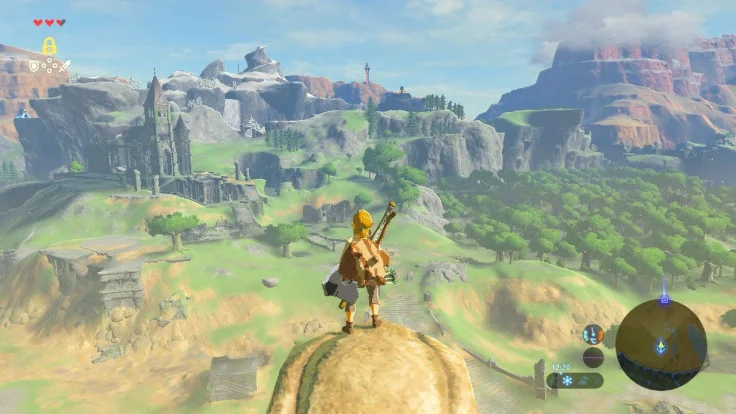
Or they could showcase the dazzling performance capture and environmental details amplifying immersion in the central journey.
And for action epics from God of War to Devil May Cry 5, extended combat sequences are mandatory to convey their core visceral edge. Whether it’s Kratos’ thunderous axe strikes cracking skulls or a relentless flurry of Dante swordplay stringing together balletic combos, these kinetic gameplay explosions are about making your knuckles itch in vicarious anticipation.
In an entertainment medium where gameplay is the beating heart of the experience, showing is always infinitely more powerful than telling. Trailers transporting you straight into the interactive action hit with vastly more oomph and immersive authenticity.
Or they could showcase the dazzling performance capture and environmental details amplifying immersion in the central journey.
And for action epics from God of War to Devil May Cry 5, extended combat sequences are mandatory to convey their core visceral edge. Whether it’s Kratos’ thunderous axe strikes cracking skulls or a relentless flurry of Dante swordplay stringing together balletic combos, these kinetic gameplay explosions are about making your knuckles itch in vicarious anticipation.
In an entertainment medium where gameplay is the beating heart of the experience, showing is always infinitely more powerful than telling. Trailers transporting you straight into the interactive action hit with vastly more oomph and immersive authenticity.
Balancing CG Sizzle & In-Game Punch
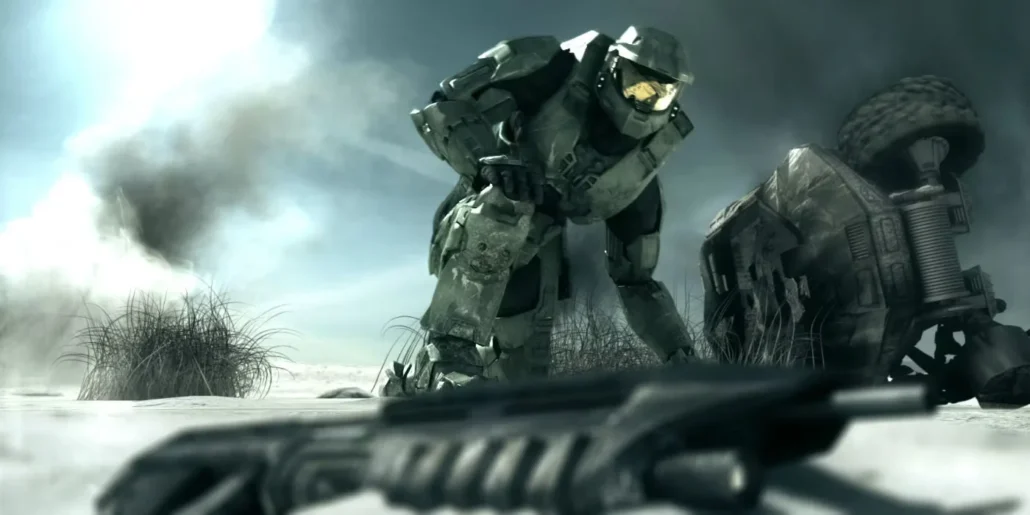
But how do you maximize the trailer’s spectacle without compromising authenticity? The masters strike a careful balance between pre-rendered CG cinematic sizzle and raw in-game footage packing an immersive punch of realism.
The Halo franchise has long been a torchbearer for this approach, peppering their trailers with pre-viz CGI sequences teasing pivotal story moments, while juxtaposing them against blistering in-engine gameplay sequences showcasing the core combat experience’s signature heat.
Whether it’s the climactic Halo 3 trailer’s CGI-fueled Warthog Launch only attainable through gameplay trickery, or Halo Wars’ majestic CG pans showing off the sheer scope of in-game battlefields, these seamless cuts blur the lines between pre-rendered aspiration and lived interactivity.
I’m not quite sure anyone else managed to blend CG spectacle into the gameplay immersion half as well as the 2018 God of War punch-up accomplished. The trailer intersperses pre-rendered Kratos/Atreus heroics with lengthy uncut gameplay vistas and super viscous axe combat sequences to jaw-dropping effect.
So it’s a case of playing to the strengths of each medium – CGI for over-arching story teasers, raw in-game for a true flavor of what it can do interactively. Mix them in a way that feels seamless, and your jaw will drop as the scent of the adventure tickles your gamer’s senses.
How to Do the Announcement Tease Right
Ultimately, for the latter, sometimes less is more in the trailer magic game — especially for early announcement teases. In this instance, the first course is mystery, intrigue, and world-building Offal Not Served on this Show.
An effective teaser for the debut trailer of Respawn Entertainment’s imminent Star Wars Jedi: Fallen Order, the above masterfully manages to generate curiosity without much in the way of gameplay, only oblique glimpses of saber-swinging, Purge imagery, and Wookiee allies in a tapestry of stylized comic panels and foreboding ambient tones— like something you’d get off the Joker’s mind table. It was light on the tantalizing and heavy on the tantalizing questions to ask about where the game’s story is heading.
Hotly anticipated franchise new entries also frequently dabble in this less-is-more approach to teasers. These trailers aim to maintain story reveals while establishing the artistic tone and creative direction through moodier vibes and signature stylistic elements.
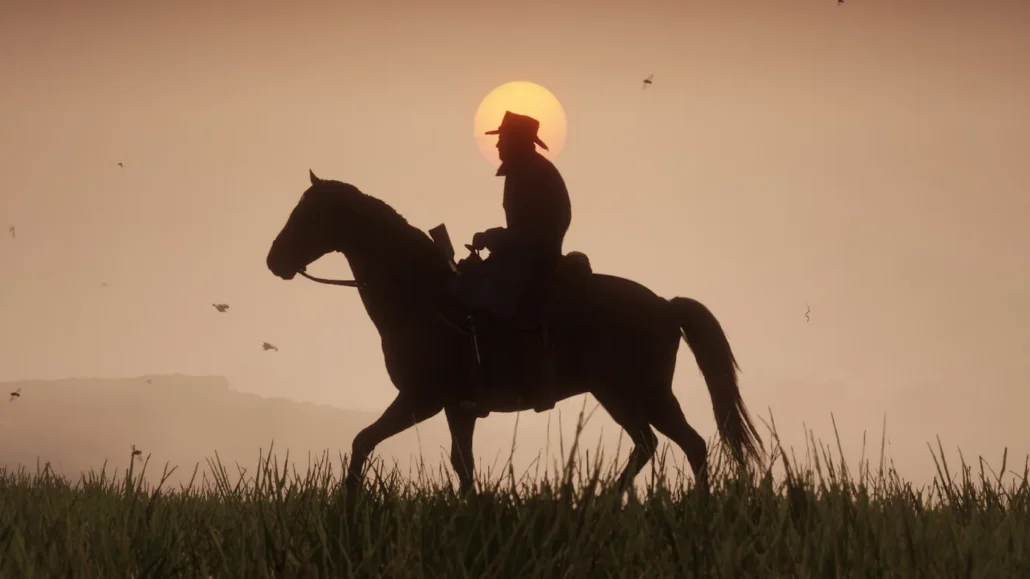
And Sony’s mind-blowing God of War: Ragnarok reveal teaser did just that. Instead of outlining any specific narratives, it captured a Nordic fantasy extravaganza, a short burst of visceral combat, and that ever-so-gloomy Kratos sense in a glorious 90-second hype builder bursting with franchise spirit.
Handled with a certain calm then, and depending as much on intrigue and memories as straight goods, these are tempting statement pieces. They serve to whet your appetite for the full meal, so you get a taste for what’s to come without passing too many courses—it is simply the essence of artistic perfection serving to fill your burgeoning desire. A consummate example of that elusive “show, don’t tell.”
Providing the Adrenaline Dose
In contrast to beginning-of-the-story teasers, however, some trailers are powerful precisely because they have no use of narrative details at all. Instead, they let rip-roaringly raw gameplay footage speak for itself — selling the adrenaline and level feel for responsive ‘pre-rendered’ without the need for language.
Few developers have capitalized on this sense better than perhaps Capcom studios with the likes of Monster Hunter and Devil May Cry 5. Their trailers frequently eschew prolonged exposition, instead hammering your skull in with relentless clips of behemoth hunting and hyper-stylish slaughter in droves.
Short on narrative, stripping away their immediate context, these gameplay reels get as close as possible to what these games are through literal interactivity. The purity of hacking titanic monsters in half with cold steel or the fluidity of chaining combos with supernatural grace and surgical cruelty. It’s about strapping audiences into the main event rollercoaster without exposition foreplay.
For titles where mechanics are the main event rather than the narrative, sometimes pure unadulterated gameplay is the greatest sales pitch possible. These all-out action theater pieces let raw combat sizzle and graphics money shots evangelize the addictive pleasures awaiting with little outside framing required.
The VFX Wizardry Behind the Spectacle
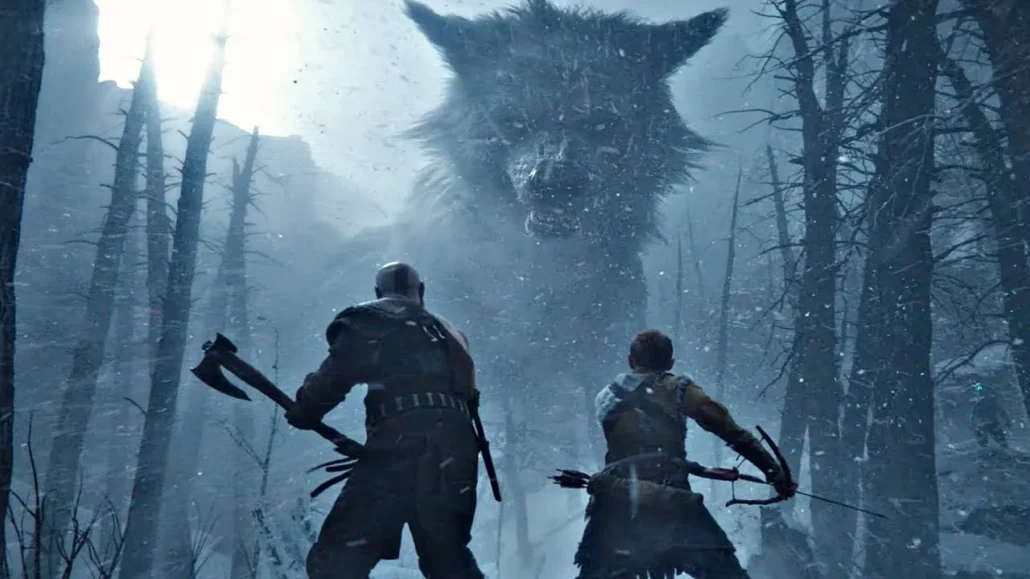
We’ve covered the importance of CG cinematic embellishments and raw gameplay immersion. But we’d be remiss not to discuss the incredible visual effects artistry often bridging that divide to conjure trailer magic.
After all, some of the most iconic gameplay moments have been elevated beyond their raw ingame origins through dazzling VFX software witchcraft. Effects like superhero landings cratering the earth. Burnished sci-fi camera lenses glistening with light rays. Or explosive fireballs enriched with volumetric smoke and sparks shrapnel across ultra-sharpened particle effects.
It’s this extra VFX mastery layered atop gameplay capture that can elevate a mere recording into an animated poster-worthy image searing into audience memories. And the wizards wielding these reality-augmentation powers are just as paramount to trailer greatness as any other role.
You need look no further than Sony’s seminal Killzone 2 trailer from 2005 to see VFX’s promotional power. Those revolutionary real-time graphics alone were mind-blowing for the time. But the kaleidoscopic money shots of anti-air missile tracers, radiant lens flares, and hyper-realistic atmospheric fog took it to another stratospheric level of watercooler “Did you see that??” spectacle.
In the modern era of relatively photorealistic graphics, dazzling VFX showmanship remains the quintessential spice that separates ho-hum gameplay reels from unforgettable trailer iconography burned into the collective consciousness. Never underestimate its ability to turn the ordinary into the extraordinary for your game.
Music - The Emotional Glue
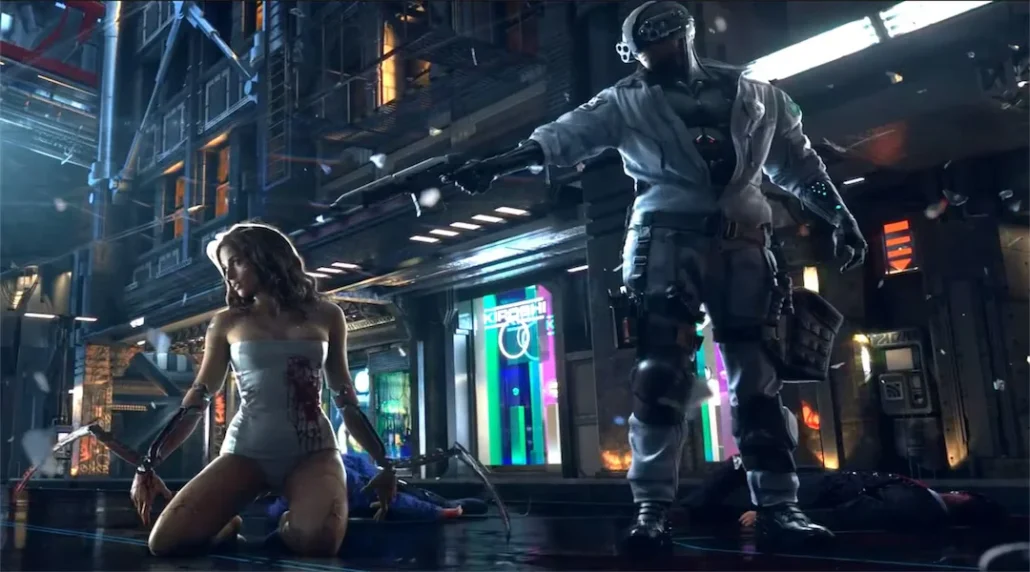
We’ve covered a vast array of technical considerations – narrative framing, atmosphere channeling, fan service bait, VFX magic, and more. But no trailer ingredient ties the total package together quite like an ingenious musical score does.
After all, what would Gears of War’s immortal “Mad World” trailer be without its haunting vocalized cover score juxtaposing beauty with brutality? How about Assassin’s Creed’s choral-backed scenic wanderlust-stoking period mystique? Or God of War’s primeval throat-singing evoking primal Nordic power?
More than any other promotional element, an ingeniously crafted soundtrack possesses the power to emotionally elevate a trailer into a total bodily experience. One burns itself into your psyche through sheer visceral resonance and perfectly illustrates the psychology of game trailers, showing how sound influences perception beyond pure visuals.
The magic is all in pinpointing the perfect emotional core you want etched into the audience’s reptilian brains. Then channeling that distilled essence through instrumentals, vocals, and scoring triggers unconscious responses electrifying every other element into a cohesive gestalt.
From Danny Elfman’s roaring Rabbit Rage to Michael Salvatori’s sacred Halo themes, the most unforgettable trailer scorer virtuosos understand music’s ability to bypass rational thought filters. To burrow straight into our soul’s primordial core and amplify our engagement a thousand-fold using emotion as the universal conduit.
While so many individual ingredients alchemize into a spellbinding trailer… it’s invariably the ingenuity and emotional connective tissue of the music that glue those elements together into a singularly transcendent whole. An experience burning white-hot into the viewer’s imagination.
The Key Takeaways to Creating Memorable Game Trailers
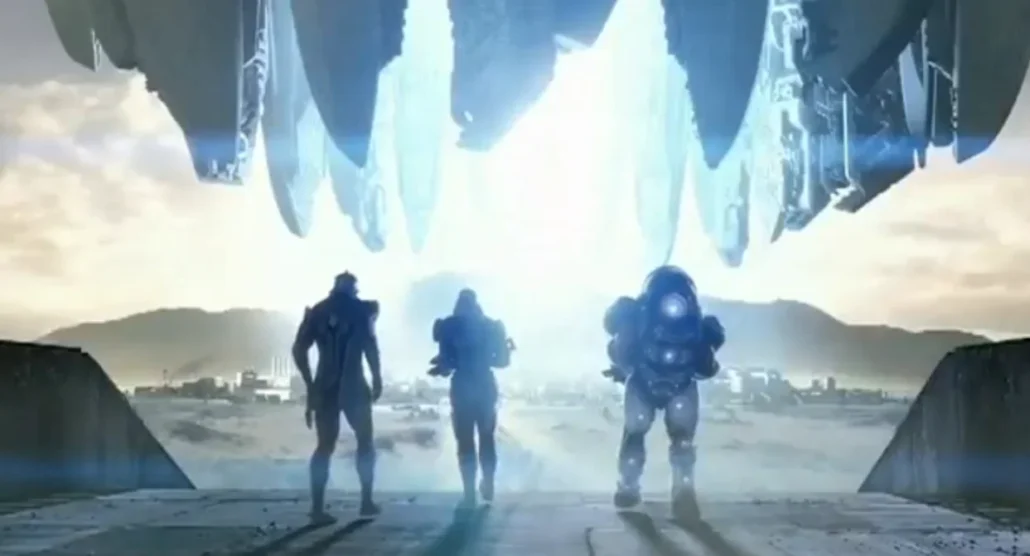
All the elements we’ve covered — storytelling, atmosphere, gameplay teases, technical wizardry and emotional scoring — are important, but the very best trailers appear to be united by a clear, almost unwavering creative vision that is not just a bit unconventional. The whole thing was transformed by trailblazers like Blizzard’s iconic World of Warcraft cinematics and Hideo Kojima’s avant-garde experiments with Death Stranding and P.T. with marketing, in some cases, becoming an art form where the cut-head promotional art might even draw more of an audience and ignite further discussion than the actual games they sought to represent.
Second, there really is no magic bullet except a fearless, wild outpouring of creativity through every frame. With a unified, unyielding voice leading the charge, any trailer is capable of crossing over from a mere advert to a bonafide work of pop art, one that can capture the attention of the public at large. But the techniques, although important, are secondary to the one vital X-factor — the brave creativity that guides your work to the unknown.
But who on earth is going to help restore the beauty in cinematic trailers of today, when we are living in a galaxy that should 100% allow for visionary voices to have their say in this never-ending art? It just takes someone with the courage to explore paths no one has ever traveled before and reveal something new to us. With a type of fearless felicity that only masters can achieve, a simple ad itself can even cross over, if you will, into becoming more of a meta-trailer, as in of the format, than any actual trailer.
Need Help With Creating a Video Game Trailer?
If that is the case, you’re in the perfect place! Pixune Studio has tons of experience in video game trailer production for various genres and platforms.
Simply Share your concept and idea for a game trailer with Pixune, and we will provide the initial consultation free of charge.
Don’t be shy, we love hearing from you!
FAQs
How long should a game trailer ideally be?
Aim for ~60-90 seconds. Shorter versions for ads/teasers (~15-30 sec). Keep it tight to maintain interest.
What should the structure of a great trailer look like?
Hook ⇒ reveal features/gameplay ⇒ emotional stakes ⇒ climax ⇒ call-to-action. Tell a mini-story.
How early should gameplay footage appear in the trailer?
As early as possible. Don’t wait too long. Viewers want to see what they’ll actually play.
How much to reveal vs what to tease to avoid spoilers?
Show core mechanics and key visuals; don’t spoil big plot twists. Keep mystery in narrative.
What role does music and sound design play?
Huge. It sets tone, adds impact, elevates pacing. Matching audio to visuals = memorable.
How to tailor trailers for different platforms?
Make separate cuts/versions: short for social media/ads, fuller for YouTube/web; adjust formatting & content per audience.
How to hook viewers in the first 5-10 seconds?
Lead with strong visuals, sound cue, or unexpected moment. Grab attention immediately.
Should trailers prioritize cinematic scenes or gameplay?
Both, but gameplay is essential. Cinematics enhance mood; gameplay shows what players do. Balance is key.
How do you write a call-to-action (CTA) that converts?
End with clear next step: wishlist, follow, pre-order, or visit site. Make it visible & compelling.
What common mistakes should I avoid in my trailer?
Overlong, slow start, hiding gameplay, bad audio mix, no emotional hook, weak first impression.
How should I pace and edit the trailer for maximum impact?
Mix slow buildup with action, vary shot lengths, use dynamic cuts synchronized to sound/music.
How do I make visuals readable & clear?
Show UI clearly, avoid clutter, use contrast, limit distractions. Key features must be evident.
How to build emotional connection with the audience?
Use story or characters, set stakes, use mood-music, show conflict/challenge. Don’t just show action.
Do I need multiple trailer versions?
Yes. Create full, teaser, short & platform-specific versions so you can reach different audiences.
When and how should I test/trailer with feedback?
Share drafts with devs, playtesters or community early. Refine visuals, pacing, clarity before final release.

